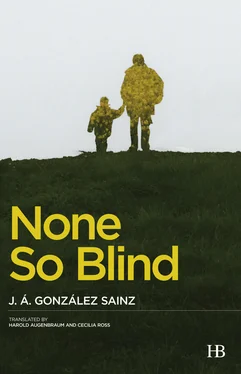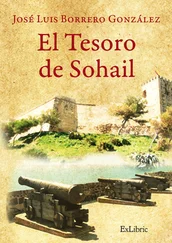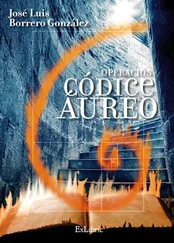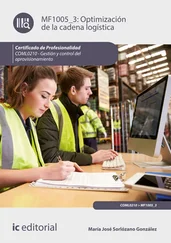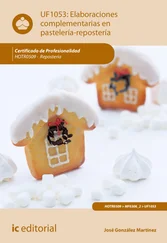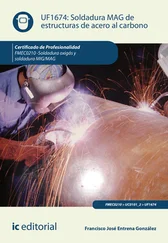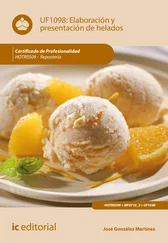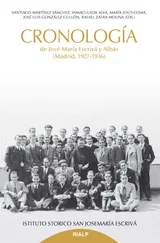“They’re not women, Einstein, they’re just a bunch of friggin’ weeds!” his older brother had told him more than once, and he said it to him again that afternoon.
Felipe knew that nothing could make his father happier than inviting him to go out to the hills with him to collect plants. What do you say we go for an excursion this Saturday, he would ask him, and he knew that from the moment he asked, he would be counting the days and making preparations and coming up with ideas for their itinerary. He had gotten ahold of a good number of maps (Army maps! — he would say), which he would pour over at all hours, memorizing the trails and crossings, the altitudes of the different mountains and the names of the different caseríos , like someone immersing himself in the syllabus for a major examination in the hope of being useful to his son.
Besides the maps, in order to keep the plants separate from one another and transport them safely back home, they went armed with a hefty bundle of old copies of the newspapers his brother usually bought, and sometimes, when they would sit down to rest or wolf down the lunch or the snack they had prepared for themselves, they would read a page silently, almost furtively, without sharing any of it or talking to one another about what they were reading.
They also took a plant manual with photographs and scientific descriptions of every species, and one of their greatest joys was not only coming upon some new plant they didn’t yet have in their herbarium but finding the corresponding plant in the book. That’s… that’s, one would say, wood sage, would you look at that— Te u — crium scorodonia , the other would rejoin, of the family Lamiaceae — its leaves have elongated petioles, yes, that’s right, ovate limbs, either heart-shaped or incurved at the stem, yes, that’s right, rough to the touch, with rounded, dentate margins. A real, live Teucrium scorodonia , no doubt about it, with its flowers in a spiky cluster, its corollas, yes, a whitish-yellowish color and sticking out quite a lot from the bilabial calyx, and its bracts, just so, small, oval, and much shorter than the leaves. Or wait, look, what do you know, another ragwort, but it’s not a groundsel, not a Senecio vulgaris , it’s a Senecio erucifolius , which I don’t think we have. It says very clearly here: Its supplementary bracts are found in a cluster of between four and eight at the base of the flower itself, like this one; so, more and longer bracts than in the other Senecios we have.
“And this one,” his son asked him one day with unusual surprise when confronted with the fetid odor and viscous feel of a plant whose leaves were cloven deeply into two lobes at the tip,“what would this one be?”
The flower’s corolla, pale yellow but scored with many, many sinews of an enigmatic purple, the same color that darkened the gorge from which they’d just emerged, produced in him, too, a disquieting, disagreeable sensation, and he didn’t know if it came from fascination or repulsion, or perhaps both at the same time.
“That’s one I’ve known for a long time; they grow, or at least they used to, if you knew where to look, on the road that went out to the field back home, too. It’s henbane, look it up in the index and you’ll see.”
“I’m not sure if it’s pretty, or really pretty, or actually really ugly, only that it really catches your eye; boy, does it catch your eye.”
To see something, the father or the son thought, or they might have thought, to see a plant, for example, or a flower, and give it a name, to see it there among so many other identical or similar or perhaps completely different or even opposite things and try to identify it, to find some connection to something you’ve noticed other times or even to something that’s been discerned once and for all, to see something and take note of it, so as not to forget, to see it and formulate a hypothesis about what you’ve seen and then later confirm it or reject it and thus to advance step by step and with open eyes; to see and then to verify what you’ve seen, to accept it, to act in accordance. To discover such a connection produced in them a strange delight, to corroborate some correspondence, to assign a name, to see that between words and things there is at times no friction, no entrapment, no argument but instead a lengthening of your reach, an expansion of your vision, independent of however repulsive or fascinating or insipid it may all appear at first glance. Every time they would figure out the name of a plant, it seemed to them the world opened up, that it broadened, that it was more capacious, that it became more detailed and grew both within them and outside of themselves. Perhaps joy — they would say to themselves, or they might think — was just a type of opening up, and hatred, conversely, was a narrowing, a strangulation of the world.
His younger son was reading on that same, still-benign November afternoon about the properties of the henbane they had collected weeks earlier — the roots, his father said to him, the roots are almost always the most narcotic part — when suddenly the door to the older brother’s room, which he generally kept sealed tight, opened, and he came out with a heavy-looking bag and made for the front door. From his chair at the far end of the dining room, next to the window, the father noticed that as soon as the bedroom door opened, the two boys exchanged a fleeting look, as if each of them knew what the other was thinking.
“They’re not women, Einstein, you stupid little brat, they’re just a bunch of friggin’ weeds!” he said to him suddenly, for the umpteenth time, as he went by, giving him a poke in the back of the neck and then a slap on the cheek that knocked off his glasses.
Without thinking, without even a split second of time between the slap he’d gotten and his immediate, unprecedented reaction, Felipe threw himself at his brother’s throat like a wildcat, knocking him to the ground with a crash that was amplified by the narrowness of the hallway. He hadn’t answered back, he hadn’t tried to stand up for himself this time with any arguments or demands, nor had he spoken one word of subservience, of forbearance, of defense, or of anything else, but instead, impelled by a strength his older brother didn’t realize and didn’t even suspect existed, as if it had been brewing and bubbling inside him for ages, waiting for just the right moment when his cup of patience, long since filled to brimming, would finally overflow, he grabbed him by the neck with everything he had and a headlock so tight it was as if he wanted to strangle him, and he flung him around, banging him against the floor and the wall, while his brother, stupefied at the surprise and his astonishing strength, seemed more concerned with not letting go of his bag than with fighting back with the only free hand left to him in his position. But he didn’t; at that point not only did he not defend himself, he didn’t fight back. Maybe it was the shock — who the hell would have thought it from a wimpy, milquetoast little shit like that, he said a few days later — or maybe it was the fact that he couldn’t make use of his other hand, or maybe, more likely, it was his brother’s unexpected, at long last resolved strength, but he didn’t defend himself or even seem very surprised when his father immediately came to his aid — let him alone, Felipe, let him alone, boy, come on, for my sake, he said, trying to separate them — instead, he just seemed glad not to have dropped his bag, and then he turned around after opening the front door to leave and said in a loud, clear voice, with a look it didn’t take his father long to recognize, that if he ever came across the little shithead again, he just might not live to tell the tale.
Читать дальше
